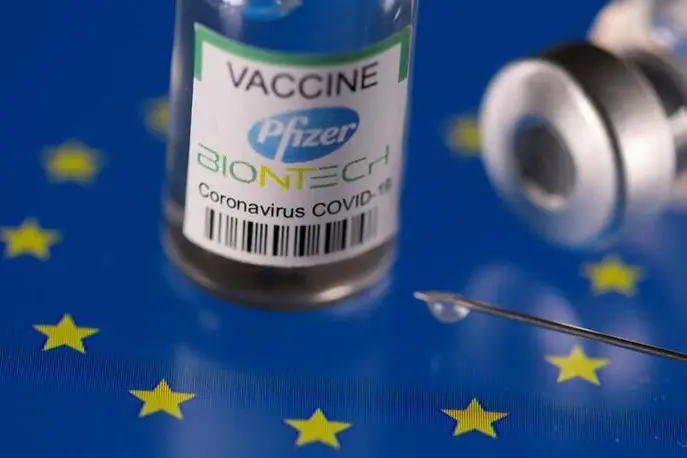PHOTO
LONDON - The European Commission has secured deals with Pfizer and several European drugmakers to reserve capacity to make up to 325 million vaccines per year in case of a future global health emergency, it said on Friday.
The agreement, first reported by Reuters, covers mRNA, vector-based and protein-based vaccines and does not relate to existing COVID-19 vaccine agreements between the EU and vaccine makers including U.S. based Pfizer.
The European Commission said Europe needs to be better prepared for future health emergencies.
The deal ensures that companies are ready to respond to a crisis by keeping their facilities up to date and monitoring their supply chains, "including stockpiling where necessary", the Commission said in a statement.
If a new public health emergency was to be declared, companies would "rapidly start production", it said.
But vaccine equity activists said the EU risked a repeat of what the World Health Organization dubbed "vaccine apartheid" during COVID-19.
“After a pandemic in which developing countries were sent to the back of the queue for vaccines and treatments, the EU and pharmaceutical companies seem to be planning to do it all over again in the next health crisis," said Mohga Kamal-Yanni, policy co-lead for the People’s Vaccine Alliance.
The Commission has selected Pfizer's plants in Ireland and Belgium to reserve capacity to produce mRNA vaccines. It selected Spanish companies Reig Jofre and Laboratorios Hipra SA to reserve capacity for protein-based vaccines and Bilthoven Biologicals B.V. of the Netherlands for vector-based vaccines.
Pfizer said it "understands the urgent need for better pandemic preparedness and response planning and has taken several key steps towards readiness for potential future global disease outbreaks", without detailing those steps.
Reig Jofre said its deal with the EU reserved capacity for four years, with the possibility to extend for a maximum duration of eight years. Neither the companies or the EU disclosed any financial details of the agreement.
The World Health Organisation has urged governments and manufacturers to reserve up to 20% of any tests, vaccines or treatments for the global agency to distribute in poorer countries to avoid a repeat of the "catastrophic failure" during the COVID pandemic, according to a draft of a global pandemic agreement currently being discussed.
(Reporting by Maggie Fick; additional reporting by Jennifer Rigby in London;Editing by Elaine Hardcastle)





















